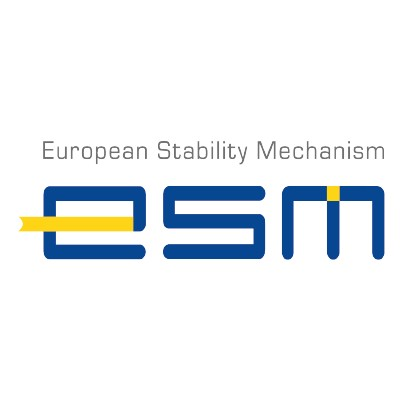The Tech Titans and Their Political Puppetry: A New Era of Influence
January 10, 2025, 3:49 pm

Location: Belgium, Brussels-Capital, Brussels
Employees: 1001-5000
Founded date: 1958

Location: United States, Kansas, Winfield
Employees: 1001-5000
Founded date: 2011
Total raised: $820K
In the digital age, the lines between technology and politics blur. The recent actions of tech moguls like Elon Musk and Mark Zuckerberg reveal a troubling trend: billionaires are stepping into the political arena, wielding their platforms like swords. This is not just a game of chess; it’s a high-stakes poker match where the chips are democracy and public trust.
Elon Musk has made headlines by inserting himself into European politics. His recent endorsement of the far-right Alternative for Germany (AfD) party sent shockwaves through the political landscape. Musk claimed that only the AfD could save Germany from economic and cultural collapse. This statement is not just a casual remark; it’s a clarion call that resonates with a segment of the population disillusioned by traditional politics.
Chancellor Olaf Scholz faces a dilemma. Should he engage with Musk’s incendiary comments or let them fester in the public discourse? Ignoring Musk could allow his influence to grow unchecked. Engaging risks amplifying his voice. Scholz chose the former, urging voters to decide Germany’s future, not social media moguls. But can words alone counter the allure of Musk’s platform?
Across the channel, French President Emmanuel Macron echoed these concerns. He warned of the dangers posed by tech billionaires meddling in politics. Who would have thought that the owner of a social media giant would directly influence elections? It’s a scenario that feels like a dystopian novel, yet here we are.
Musk’s focus has shifted to the UK, where he has labeled Labour leader Keir Starmer as “evil.” His comments about child sexual abuse cases have stirred controversy, linking them to immigration and Islam. This narrative plays into the hands of far-right activists, creating a toxic brew of misinformation. Starmer, facing backlash, condemned Musk’s “lies and misinformation.” The political landscape is now a battlefield, with Musk as a provocateur.
Meanwhile, Meta, under Zuckerberg’s leadership, has made a significant policy reversal. The company has scrapped its U.S. fact-checking program, bowing to pressure from conservatives as Trump prepares for his second term. This decision is a stark reminder of the power these tech giants wield. Zuckerberg’s move seems less about sound policy and more about political appeasement. The implications are profound. Disinformation spreads like wildfire, and the public is left to navigate the chaos.
Meta’s shift raises questions about accountability. The company plans to introduce “Community Notes,” allowing users to flag misleading posts. But will this be enough? Critics argue that this approach places too much responsibility on users, undermining the need for expert oversight. In a world where misinformation evolves rapidly, this feels like a step backward.
The European Union is not sitting idly by. It has launched investigations into both Musk’s X and Meta for their handling of harmful content. The Digital Services Act imposes strict regulations on large platforms, demanding transparency and accountability. The stakes are high. Failure to comply could result in hefty fines, a reality that both companies must navigate carefully.
Musk’s political maneuvers come with risks. Tesla’s sales in Europe are already struggling, with registrations plummeting. Investors are watching closely. Will Musk’s political antics alienate potential customers? The gamble is risky, but Musk seems undeterred. He’s playing a long game, betting on a shift to the right in European politics.
The question remains: what does this mean for democracy? When tech billionaires wield such influence, the fabric of society frays. Politicians are left scrambling to respond to the whims of these powerful individuals. The traditional power dynamics are shifting, and the consequences are far-reaching.
In the U.S., the political landscape is similarly fraught. The upcoming Trump administration is likely to reshape the relationship between tech companies and government. Zuckerberg’s decision to end fact-checking is a clear signal of this shift. It’s a dance of power, where the steps are dictated by the whims of a few.
As we navigate this new terrain, the need for robust regulations becomes increasingly clear. The tech giants must be held accountable for their actions. Democracy cannot thrive in an environment where misinformation reigns supreme. The public deserves better.
In conclusion, the intersection of technology and politics is a double-edged sword. The actions of Musk and Zuckerberg highlight the precarious balance between free speech and responsible governance. As these tech titans continue to influence political discourse, the challenge for society is to ensure that democracy remains intact. The stakes are high, and the outcome is uncertain. But one thing is clear: the game has changed, and we must adapt to survive.
Elon Musk has made headlines by inserting himself into European politics. His recent endorsement of the far-right Alternative for Germany (AfD) party sent shockwaves through the political landscape. Musk claimed that only the AfD could save Germany from economic and cultural collapse. This statement is not just a casual remark; it’s a clarion call that resonates with a segment of the population disillusioned by traditional politics.
Chancellor Olaf Scholz faces a dilemma. Should he engage with Musk’s incendiary comments or let them fester in the public discourse? Ignoring Musk could allow his influence to grow unchecked. Engaging risks amplifying his voice. Scholz chose the former, urging voters to decide Germany’s future, not social media moguls. But can words alone counter the allure of Musk’s platform?
Across the channel, French President Emmanuel Macron echoed these concerns. He warned of the dangers posed by tech billionaires meddling in politics. Who would have thought that the owner of a social media giant would directly influence elections? It’s a scenario that feels like a dystopian novel, yet here we are.
Musk’s focus has shifted to the UK, where he has labeled Labour leader Keir Starmer as “evil.” His comments about child sexual abuse cases have stirred controversy, linking them to immigration and Islam. This narrative plays into the hands of far-right activists, creating a toxic brew of misinformation. Starmer, facing backlash, condemned Musk’s “lies and misinformation.” The political landscape is now a battlefield, with Musk as a provocateur.
Meanwhile, Meta, under Zuckerberg’s leadership, has made a significant policy reversal. The company has scrapped its U.S. fact-checking program, bowing to pressure from conservatives as Trump prepares for his second term. This decision is a stark reminder of the power these tech giants wield. Zuckerberg’s move seems less about sound policy and more about political appeasement. The implications are profound. Disinformation spreads like wildfire, and the public is left to navigate the chaos.
Meta’s shift raises questions about accountability. The company plans to introduce “Community Notes,” allowing users to flag misleading posts. But will this be enough? Critics argue that this approach places too much responsibility on users, undermining the need for expert oversight. In a world where misinformation evolves rapidly, this feels like a step backward.
The European Union is not sitting idly by. It has launched investigations into both Musk’s X and Meta for their handling of harmful content. The Digital Services Act imposes strict regulations on large platforms, demanding transparency and accountability. The stakes are high. Failure to comply could result in hefty fines, a reality that both companies must navigate carefully.
Musk’s political maneuvers come with risks. Tesla’s sales in Europe are already struggling, with registrations plummeting. Investors are watching closely. Will Musk’s political antics alienate potential customers? The gamble is risky, but Musk seems undeterred. He’s playing a long game, betting on a shift to the right in European politics.
The question remains: what does this mean for democracy? When tech billionaires wield such influence, the fabric of society frays. Politicians are left scrambling to respond to the whims of these powerful individuals. The traditional power dynamics are shifting, and the consequences are far-reaching.
In the U.S., the political landscape is similarly fraught. The upcoming Trump administration is likely to reshape the relationship between tech companies and government. Zuckerberg’s decision to end fact-checking is a clear signal of this shift. It’s a dance of power, where the steps are dictated by the whims of a few.
As we navigate this new terrain, the need for robust regulations becomes increasingly clear. The tech giants must be held accountable for their actions. Democracy cannot thrive in an environment where misinformation reigns supreme. The public deserves better.
In conclusion, the intersection of technology and politics is a double-edged sword. The actions of Musk and Zuckerberg highlight the precarious balance between free speech and responsible governance. As these tech titans continue to influence political discourse, the challenge for society is to ensure that democracy remains intact. The stakes are high, and the outcome is uncertain. But one thing is clear: the game has changed, and we must adapt to survive.